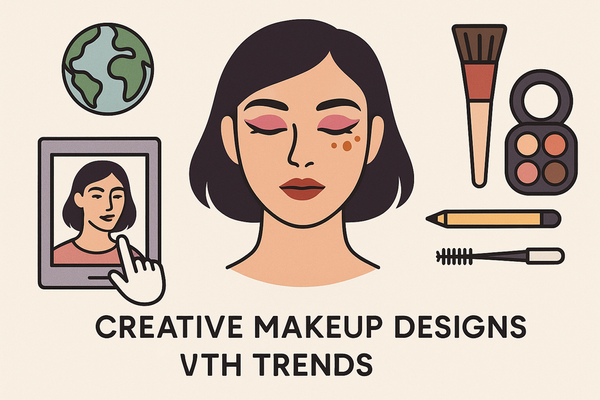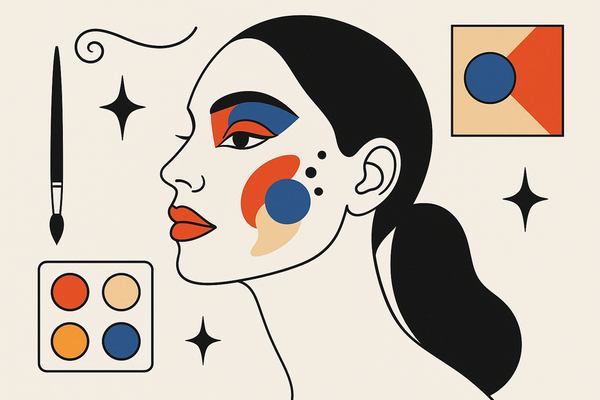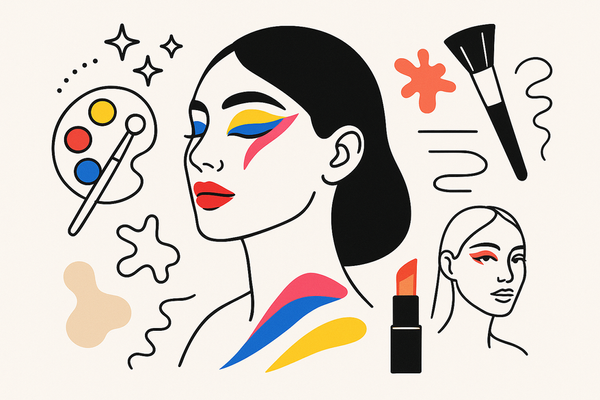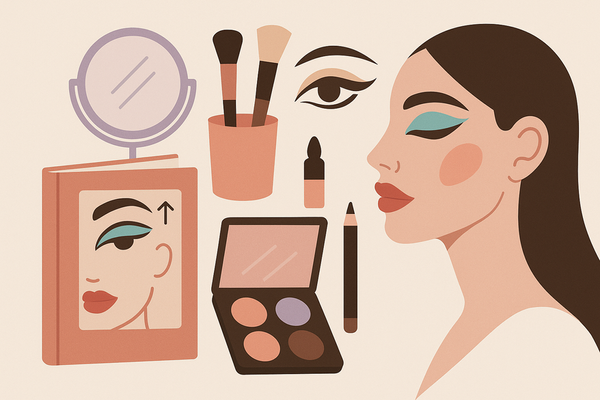The Ultimate Guide to Interactive AR Makeup Lessons
Explore how interactive AR makeup lessons enhance beauty education with technology-driven tutorials, offering virtual try-ons and real-time feedback.
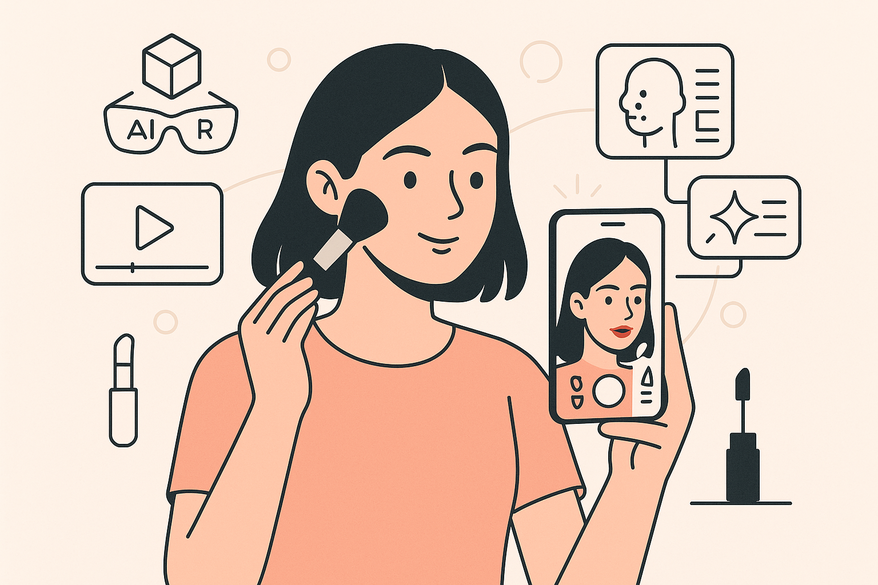
Estimated reading time: 8 minutes
Key Takeaways
- Interactive AR makeup lessons overlay digital cosmetics in real time, offering virtual try-on, instant feedback, and personalized guidance.
- Core features include virtual try-on, real-time correction, and AI-driven tutorials tailored to individual faces.
- Benefits range from cost savings and mess-free experimentation to enhanced engagement for beginners and pros.
- Accessible via AR-enabled apps and devices with a simple onboarding process.
- Future trends point to deeper AI integration, wearable AR, and cloud-based 3D visualization.
Table of Contents
- Overview of AR in Beauty
- What Makes AR Makeup Lessons Interactive?
- How to Access AR Makeup Lessons
- Benefits for Beginners and Professionals
- Future Trends
- Conclusion
- Additional Resources
Overview of Augmented Reality in the Beauty Sector
Augmented Reality (AR) overlays digital elements onto real-world views via a device’s camera, enhancing perception by fusing virtual images or data with your surroundings in real time.
Everyday AR applications:
- Social media filters that add virtual accessories or effects to your face.
- Navigation aids displaying directions on live camera feeds.
- Retail try-on tools for eyewear, clothing, and makeup.
In beauty, AR has revolutionized virtual try-on (see our post Virtual Makeup Try-On: Revolutionizing Beauty with AR and AI):
- Users preview foundation, lipstick, and eyeshadow shades instantly.
- Smart mirrors and apps apply makeup layers through facial landmark detection.
- Retailers integrate AR kiosks in stores and online to boost sales and reduce returns.
Transformation of traditional makeup lessons:
- Live overlays guide users through each step of application.
- Facial mapping adjusts tutorials to individual face shapes.
- Messy palettes and cleaning brushes are replaced by pixel-perfect renderings.
Thanks to real-time overlay and AI-driven facial mapping, makeup classes are now interactive experiences. Learners receive dynamic, visual feedback as they follow on-screen markers, making teaching methods more engaging and precise.
What Makes AR Makeup Lessons “Interactive”?
Interactivity means two-way engagement: the lesson adapts to the user’s input and actual appearance. Unlike passive videos, interactive AR makeup lessons respond in real time.
Feature 1 – Virtual Try-On
- Technical workflow:
- Camera captures live face video.
- AI detects facial landmarks and maps features.
- AR engine renders makeup layers (foundation, blush, eyes, lips) seamlessly.
- Users instantly preview products and shades on their face.
- No need to purchase or physically apply items.
Feature 2 – Real-Time Feedback
- On-screen overlays guide brush strokes, color placement, and blending.
- Feedback loop:
- The app compares the user’s current application to an ideal makeup map.
- Corrections appear as highlights or arrows on the face.
- Users adjust strokes and pressure based on visual cues.
Feature 3 – Personalized Tutorials
- AI analyzes:
- Facial structure (bone angles, feature symmetry)
- Skin tone and undertones
- Personal style preferences (bold, natural, editorial)
- The lesson adapts steps, recommended products, and color palettes accordingly.
Comparison with conventional tutorials (to dive deeper, see our AR step guide):
- One-way videos or static diagrams vs. dynamic lessons.
- Standard tutorials cannot adjust to face shape or real-time errors.
- AR lessons immerse learners and boost retention through hands-on guidance.
How to Access AR Makeup Lessons
- Select an AR Platform or App
- YouCam Tutorial by Perfect Corp – comprehensive skill-building and full-look lessons.
- Sephora Virtual Artist – retailer-branded trials and expert tutorials.
- Other options: L’Oreal Makeup Genius, Banuba Beauty SDK.
- Check Device Requirements
- AR-enabled smartphone or tablet with a front camera.
- Stable internet connection for real-time data processing.
- For professionals: smart mirrors or AR glasses with SDK support.
- Onboarding Process
- Sign up or log in with email or social credentials.
- Grant camera access for facial scanning.
- Position face in frame under natural, even lighting.
- Wait for 5–10 seconds as the app maps your key facial landmarks.
- Choose lesson type:
- Skill focus (e.g., contouring, smokey eye)
- Full look (e.g., bridal, editorial)
- Engage with the Lesson
- Follow on-screen markers pointing to eyelids, cheeks, lips.
- Use progress trackers or gamified points to measure completion.
- Save snapshots, videos, or before-and-after comparisons.
For a hands-on walkthrough of augmented reality tutorials, check out our complete AR guide.
Benefits for Beginners and Professionals
For Beginners
- Risk-free environment: experiment without product waste or allergic reactions.
- Instant error correction: on-screen feedback prevents mistakes.
- Confidence building: practice until perfection without pressure.
For Professionals
- Advanced technique practice: master precision eyeliner or color correction.
- Remote demos: showcase looks to clients across locations via video sharing.
- Consistency: ensure uniform application on diverse face shapes.
Customization & Safe Experimentation
- Unlimited virtual try-ons of bold colors and textures.
- No cost per shade or brush—ideal for trend-driven experimentation.
- Explore seasonal palettes, editorial styles, and high-fashion looks.
Increased Engagement & Retention
- Gamified progress tracking motivates ongoing learning.
- Real-time interaction keeps users focused longer than passive tutorials.
- Personalized milestones and badges reward skill mastery.
Future Trends in AR Makeup Lessons
AI Integration
- Predictive guidance: next-step suggestions based on progress and user behavior.
- Adaptive lesson flow that shortens or extends steps as needed.
Virtual Dermatology & Skincare Analysis
- AR scans assess skin health: hydration levels, pore size, fine lines.
- Personalized skincare regimen recommendations alongside makeup tutorials.
AR Glasses & Wearables
- Hands-free tutorials through smart glasses in salons or at home.
- Voice-activated prompts and touchpad controls for seamless navigation.
Cloud-Based 3D Visualization
- Store and sync virtual looks across multiple devices.
- Instant social sharing for community feedback and peer review.
- 3D makeup models that adjust lighting and angles for realistic previews.
Industry Collaboration
- Brands embedding AR SDKs in partner apps for exclusive tutorials.
- Cross-platform experiences linking e-commerce, influencer content, and AR lessons.
Conclusion
Interactive AR makeup lessons blend augmented reality, AI, and beauty expertise to revolutionize how we learn and practice makeup. These immersive tutorials:
- Define new standards for convenience, personalization, and engagement.
- Offer risk-free, hands-on learning for beginners and advanced pros.
- Save time and money by replacing physical products with digital overlays.
- Promise an even richer future with AI-driven guidance, AR wearables, and cloud-based sharing.
If you’re passionate about leveling up your makeup skills, try an interactive AR makeup lesson today and experience virtual try-on, real-time feedback, and tailored tutorials that adapt to you.
Additional Resources
- Perfect Corp YouCam Tutorial
- Sephora Virtual Artist insights
- AR in Beauty & Cosmetics by Kivisense
- Banuba AR Beauty Technology use cases
FAQ
- Which devices support AR makeup lessons? Most AR-enabled smartphones or tablets with a front-facing camera work seamlessly. Professional setups may use smart mirrors or AR glasses.
- Do I need to buy products before trying shades? No—virtual try-on lets you preview foundations, lipsticks, and eyeshadows without any purchase or physical application.
- How accurate are the virtual shades? Advanced AI mapping ensures realistic color rendering, though lighting and screen calibration can influence perception.
- Can professionals use AR lessons with clients? Yes—remote demos and recorded progress videos help makeup artists showcase techniques and collaborate across distances.
- Are my privacy and data secure? Reputable AR apps encrypt facial data and process scans locally or on secure servers. Always review the app’s privacy policy before use.

